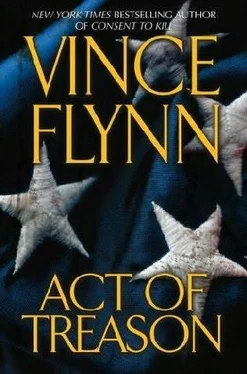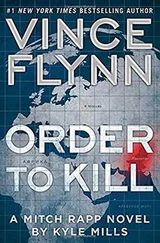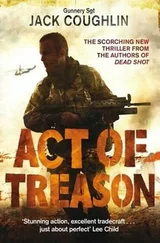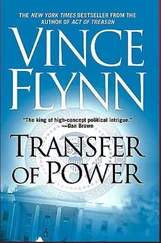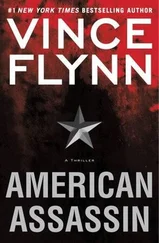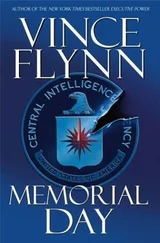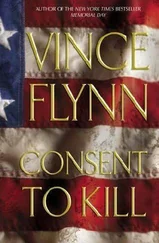It was a world Rapp knew well. The covert ops business required rubbing shoulders with people who were on par with Swiss bankers when it came to secrecy. In essence it was a loose network of former intelligence, law enforcement, and military types. Many of these people worked for real security firms. The firms handled legitimate work and subcontracted out the black bag stuff on the side. Rapp ruled these companies out from the start of his investigation. Targeting a presidential candidate and setting off car bombs in Washington, DC, was way off the reservation. No big security firm or foreign intelligence service would touch a contract like this. The downside was simply too great. The job would have been taken by someone out of the mainstream. Someone small. A one-, two-, or three-man shop at the most. It would also have to be someone who didn’t mind taking money from terrorists, and that made the list of potential suspects pretty thin.
All of this was going through Rapp’s head when they got the first big break-the Starbucks tape. There had literally been hundreds of tapes to review from local Georgetown businesses. A computer genius at Langley named Marcus Dumond had caught the oversight. Dumond had written a computer program that piggybacked the recognition software they already used. The thousands of hours of surveillance footage was scanned with the new program looking for baseball hats. It came back with over a hundred hits, but it was the Starbucks one that fit the time frame and Rivera’s description of the man she’d seen. It did not provide them with a clear photo of the suspect, but it was a start. The brim of his hat blocked most of his face from the camera, but they knew what his mouth and chin looked like, and they also got a brief glimpse of his nose and the lower portion of his eyes. They also knew his height and approximate weight.
Most important for Rapp, though, was that he now knew how the man moved. How he carried himself. They had him on tape for twenty-seven seconds while he waited in line to order his drink. Thanks to the time stamp on the surveillance footage they were also able to go back and find out exactly what the assassin had ordered-a double espresso. Definitely more European or Middle Eastern than American, and that was where the hunt had led them-to the countries that bordered the Mediterranean.
Rapp started with the CIA’s database and then contacted his colleagues in Britain, France, and Italy. For close to four weeks Rapp and a small team had been hopping all over the Mediterranean running down leads. They’d been in Tunisia, Italy, Greece, Turkey, and now Cyprus. They had narrowed the search down to three names. Whether those three names represented three separate individuals or one, they couldn’t be sure. The business was funny that way. It was very easy for an operator to take on multiple identities and use different pseudonyms depending on the target, the type of hit, or the region. With each passing day, though, Rapp was beginning to believe it was one man. There were too many similarities. Too many intersecting paths.
Rapp’s contact in Istanbul was dependable: a deputy undersecretary in the Turkish National Intelligence Organization who had been on the CIA payroll for almost three decades. He told Rapp there was a good chance the man he was looking for lived in Cyprus. He did business in Istanbul from time to time, but Limassol, Cyprus, was his home. The Turkish spy gave Rapp an address, an e-mail account, and a low-quality surveillance photograph. Dumond pulled all the information together in less than a day and was still trying to connect the dots. They had real estate records, tax returns, past and present e-mail accounts, and banking records. The guy he was looking for operated a front company out of an office above the café he’d been sitting across from for the past two hours. The owner of the café was his landlord. The tenant went by the name of Alexander Deckas. Rapp thought it a strange irony that the suspected assassin went by the same first name as the last name of the man he had tried to kill.
Rapp stood and dabbed the wine from his pants. A sympathetic waiter handed him a second napkin. He cleaned the wine as best he could while trying to come up with the worst possible overseas posting for Brooks. The waiter gave him a third napkin, and Rapp gave him the two soiled ones. He glanced around the area to see how much attention he had garnered. The café was on a one-way street in front of the hotel so all the parked cars were pointed east. Halfway down the block to his left, something caught his eye. Casually, he threw some cash down on the table and thanked the waiter in Italian. He didn’t know Greek and figured it was the next best option. Rapp then started down the street. He pulled at his wet shirt and continued to act concerned over his soiled clothes. He glanced to his right and confirmed what he had seen. Two men were sitting in a car. One of them was holding a camera with a telephoto lens and it was pointed at the same café Rapp had been watching.
Rapp looked away and grabbed his phone. After several rings a man answered.
“What’s up?”
“Where are you?” asked Rapp.
“ Athens.”
“Get your ass to Cyprus, and I mean yesterday.”
“What’s wrong?”
“I don’t think we’re the only people looking for this guy.”
“I’m at the airport right now. I’ll see what’s available and get back to you.”
Rapp hit the end button and kept walking. He was trying to figure out his next move when it presented itself in the form of a mannequin perched in a storefront window near the end of the block. New clothes and a view of the two men across the street were exactly what he needed.
ZERMATT, SWITZERLAND
The partygoers in the Alex Hotel were all in a good mood, and they should have been since not a single one of them had paid for a thing all weekend. This particular environmental conference was one of the hottest tickets on the annual circuit. One day of workshops and panels, and two days of skiing and debauchery at one of Europe ’s finest ski resorts. A Grateful Dead cover band was on a tiny stage playing “Cumberland Blues” as the crowd of rhythmically challenged, Birkenstock wearing, patchouli oil-smelling, prematurely gray, Mother Earth lovers danced a herky-jerky dance that would have made any lover of the Motown Sound either cry or double over in laughter.
Mark Ross stood near the back of the room with a permanent smile on his face. He had attended the event five previous times as a U.S. senator and the attendees had always been nice to him, but now they treated him like royalty. He had been smart to embrace this issue years ago. If one was to rise to the top of the Democratic Party it was very important to have the proper credentials. No résumé builder was more vital than the role of compassionate environmentalist. These were the foot soldiers. The people who got out the vote. Who organized things from the grass roots with their e-mail blasts and blogs. He appreciated everything they’d done for him, and would hopefully do for him in the future. He was already thinking about his turn. Eight years wasn’t so long. There were limits though. He was now at the top of the political heap. One place from the pinnacle. He’d put in enough time with the unwashed. Now it was time to head off to Mount Olympus and bask in the adoration of the truly powerful.
The toughest invite of the entire weekend was for Joseph Speyer’s party at his mountainside villa. The Deadheads were not welcome. Speyer’s party was for the heavy hitters-European royalty; fashion icons from Paris, London, New York, and Milan; international financiers; media moguls; the occasional movie or rock star; hip politicians; and ultra-wealthy trust funders. In other words, the beautiful people who flew in on their private planes, partied hard, wrote big checks, and then flew on to the next big party, or one of several mansions they owned. Conservation to these people meant having their staff recycle their diet pop cans and designer plastic water bottles. Some of them went so far as to buy a small hybrid car, but the purchase was simply to drive to a friend’s house on the weekend. They still kept their limos, SUVs, luxury sedans, and sports cars.
Читать дальше
